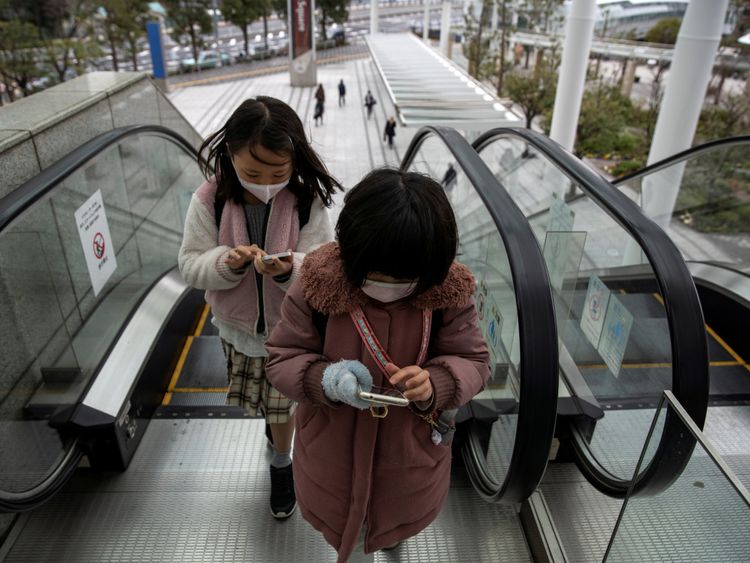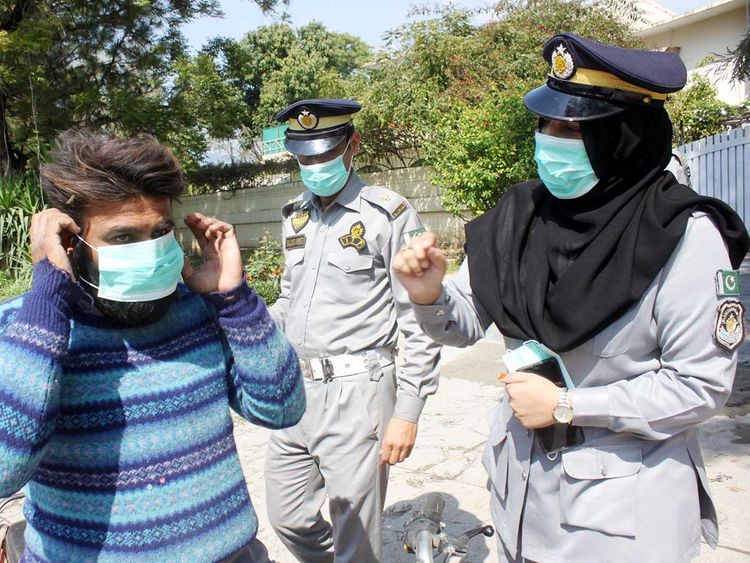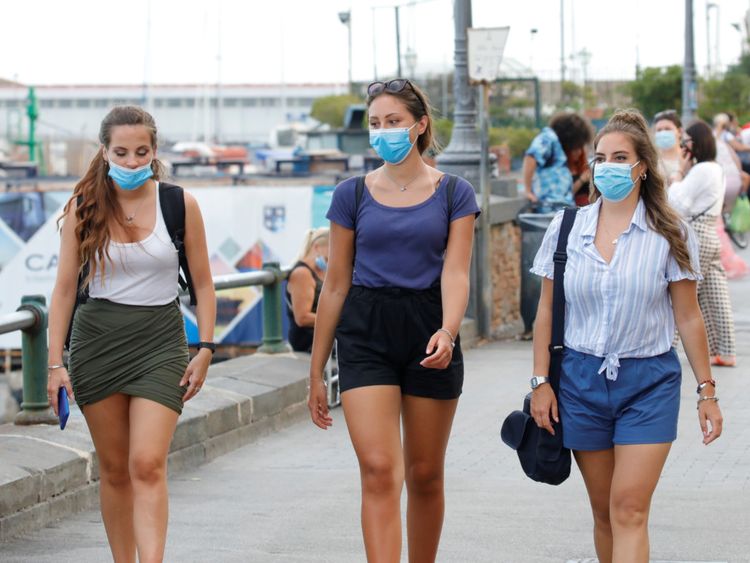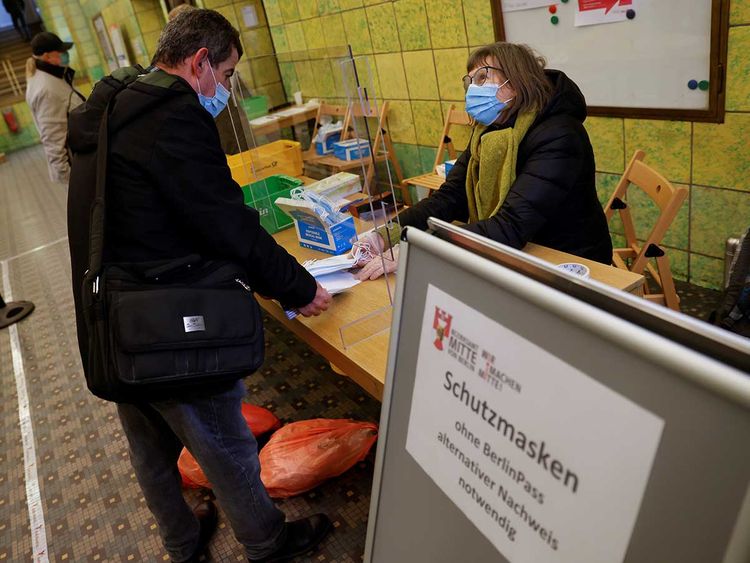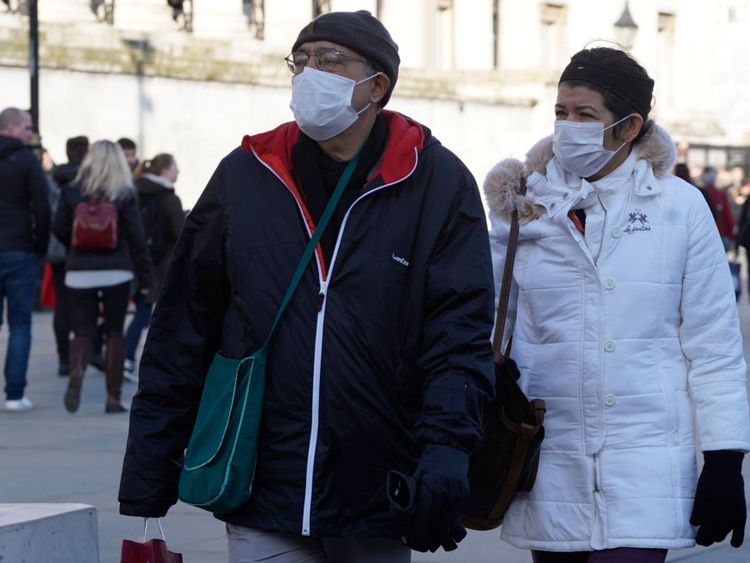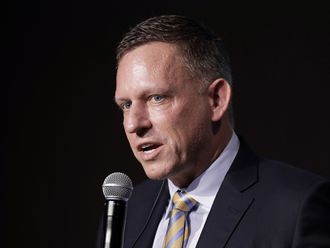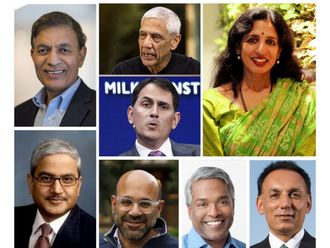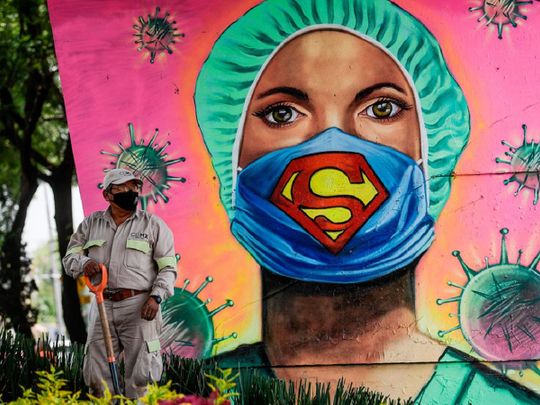
Highlights
- Some countries, especially those with high vaccination rates like the US and the UK, are behaving like the pandemic is over.
- "Freedom Day" is one of the things billions of people are looking forward to in a bid to return to normal.
- Some countries, after lifting mask mandates, have made a U-turn, after infections spiked.
- Scientists warn in places with high caseloads, people still need to continue to use masks consistently, be in ventilated spaces, hand hygiene, observe physical distance, avoid crowding.
Dubai: To mask or not to mask: That is the question.
Some countries now offer a resounding answer: “Freedom Day”. It marks a delicate sort of victory. COVID has been “contained”. But it must be asked: is such “freedom” a premature move? And which is more important: freedom from COVID, or freedom for showing full facial expression and going back to former ways right here, right now?
Certain states in the US as well as UK, have already lifted — or are about to lift — mask-wearing rules. Gavi, the global vaccine alliance, said it may not be the right approach for all countries — just yet.
Consider the facts:
The world is still in the midst of a deadly pandemic, which had already claimed nearly 4 million lives. The latest one-day body count remains grim: 1,780 deaths in Brazil, 930 in India, 728 in Indonesia, 726 in Russia, 714 in the US, 553 in Colombia, 462 in Argentina, 457 in South Africa, 269 in Mexico, 146 in Iran, 50 in Germany and 34 in France — within 24 hours on Tuesday (July 6, 2021). Tokyo, where the Delta variant has already reached 40%, declared an emergency on Wednesday ahead of the Olympics, after more than 900 new cases were recorded Tuesday.
What experts have to say:
‘We need to do it under constant monitoring’
The ability to go out without a mask is perhaps one of the things people had been looking forward to in the last 18 months. Dr. Unni Rajasekharan Nair, Internist at Zulekha Hospitals, said: “What we need to understand is that mask wearing cannot go indefinitely. So the policy for mask removal (in a) stepwise manner, as per test positivity rate and vaccination status, should be OK. We need to do it under constant monitoring.”

What are the conditions in which mask rules may be lifted? “It’s appropriate when test positivity rate is low and sufficient herd immunity is reached,” added Dr Nair. “Vaccination of 2 doses received for more than 60 percent of community or 1 dose received for 70-80% of community is the ideal scenario. It’s important to closely monitor test positivity rate too. Moreover, infrastructure in terms of sufficient hospital beds to take care of sick patients is also mandatory.”
‘Masks vital in preventing infections and saving lives’
“Masks are pivotal in controlling the transmission of infection and saving lives. One must have an approach of ‘Do it All’, which includes physical distancing, avoiding crowded areas, closed and closed contact settings, good ventilation, cleaning hands, covering sneezes and coughs and more,” said Dr Assem Youssef, Specialist Pulmonologist, Medcare Hospital Al Safa, Dubai.

“Moreover, it is recommended by the regulation to wear fabric masks for the general public and especially by those who haven’t been fully vaccinated; they should continue to wear face masks in indoor public places and outdoors where there is a high risk of COVID-19 transmissions, such as crowded events or large gatherings,” Dr Assem Youssef said.
What happens if people don’t wear face masks?
“Not wearing a mask makes the person vulnerable to infection, which is not only deadly but can have a lasting impact on health after recovery. Wearing a mask protects not only oneself but for others too from coming in contact with the infected person. Since the virus is evolving, it is not presenting itself and one does not realise when they already have contracted the infection. Hence, wearing a mask is imperative to one’s safety and for others also,” Dr Assem Youssef said.
Wearing mask reduces viral transmission
Another expert explained the simple value of wearing a face mask properly. “It will protect those around you from infection and vice versa. The myths that it reduces the amount of oxygen you inhale or it can raise carbon dioxide levels, your immunity gets low are simply not true, all you need is to sync and inhale deep breaths while wearing a mask and cover your nose and mouth properly. Wearing a mask correctly reduces viral transmission,” said Dr Pulak Gupta, Internal Medicine (General Practitioner), Aster Cedars Hospital, Dubai.

People are required to wear face masks all times in the UAE
In the UAE, people are required to wear a face mask at all times when they are visiting a public place – indoors or outdoors – using public transport or accompanying two or more people in a private vehicle. There are just a few exceptions to this rule, where people can take off their mask temporarily in certain situations like when they are eating outdoors, or undergoing specific treatments.
• Visiting an indoor public place, shopping mall or using public transport. Fine: Dh3,000
• Walking or jogging in crowded, dense outdoor public places. Fine: Dh3,000
• Accompanying two or more people in a private vehicle (the driver and one or more than one passenger). Fine: Dh3,000
• At the workplace and shared residence for workers. Fine: Dh5,000 for the person in charge of the company or the facility and Dh500 for the worker.
Why the UK, Europe, US are opening up when the world is shutting down?
With virus variants swirling around the globe, questions are being asked: are these countries celebrating too soon? Why are countries lifting key restrictions, like wearing masks and maintaining social distancing?
Confidence from good vaccine numbers
In the UK, July 19 is being termed as “Freedom Day” by Prime Minister Boris Johnson’s supporters. That’s when the government is expected to lift nearly all coronavirus-related restrictions in England. Not all are celebrating, though. The head of the opposition Labor Party, Keir Starmer, called Johnson’s plan “reckless.”
Scientists have said that restrictions coupled with vaccines are the best way to fight the resurgence of coronavirus. Two-thirds of the adult population in Britain are fully vaccinated against COVID-19. But the country is confronting a huge wave of new cases, mainly on the back of the highly transmissible Delta variant.
British Health Minister Sajid Javid has warned that new cases could reach 100,000 per day over summer. At present there are about 25,000 cases a day.
Vaccines expected to protect against serious illness
The general feeling is that a surge in cases will not bring about a similar jump in hospitalisations and deaths, because vaccines are expected to protect against serious illness. But with the Delta variant running riot, Britain will be a test case of how a vaccinated country will stand up to the coronavirus.
In the US, nearly 50 per cent of the population is vaccinated, giving the government the confidence to go ahead with dropping restrictions.
Population weary of restrictions
In the UK, many Britons are weary of restrictions after one of the world’s longest lockdowns. In the US and Europe too, there have been calls for lifting the stifling curbs. Sensitive to public opinion, governments feel this is a good time to ease curbs and hope the population is not jolted by further waves of COVID-19 infections.
What do scientists say about opening up, specifically lifting the mask rule?
In the US, the Centres for Disease Control and Prevention COVID-19 guidelines states masks are not necessary for fully-vaccinated people since the jabs help curb infections and coronavirus transmission — except for high-risk areas such as hospitals, nursing homes and on public transport.
There’s already a growing body of evidence that point to the effectiveness of vaccines in preventing severe illness and hospitalisation. This policy change incentivises people to get vaccinated. But the government also recommends that people continue to wear masks because — even if they are vaccinated — they still can get infected.
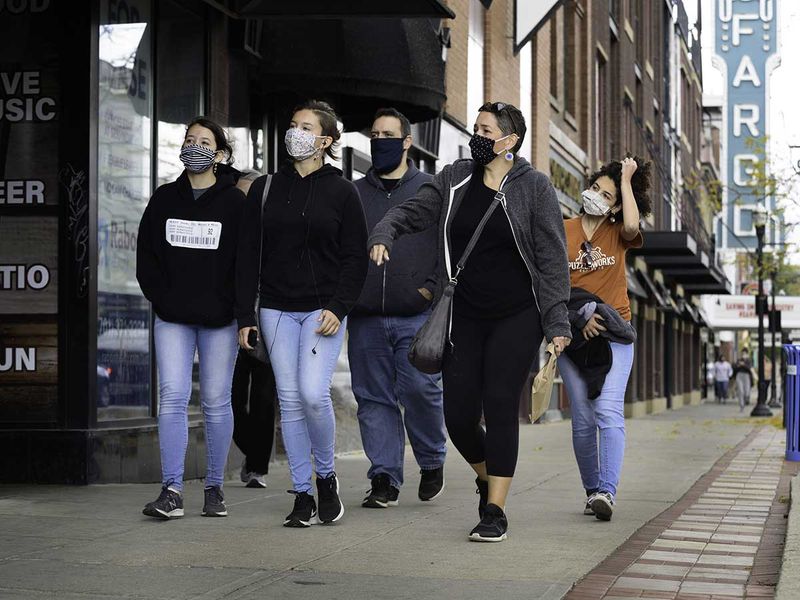
• Unvaccinated and partially vaccinated people should wear masks indoors and when they are in close contact with others outdoors. But Puerto Rico has asked its residents to continue wearing masks.
• 30 states that had orders broadly requiring residents to wear masks in public have lifted
• 9 US states require people who are not yet fully vaccinated against COVID-19 to wear face coverings in most indoor public settings.
• 11 states did not impose mask mandates at any point during the pandemic. Several states, including Florida, Texas, Arkansas and Iowa, have moved via legislation or executive action to prevent cities, counties and school districts from instituting their own mask rules.
• Remaining state mandates vary in detail (for example, exemptions for children range in cutoff age from 2 to 12), but broadly speaking, they require masks in indoor public spaces such as restaurants and stores.
• Where masks are still required outdoors, the rules apply when people are unable to maintain 6 feet of distance from others.
• The government has been warning the public to avoid the “three Cs” — closed spaces, crowds and close-contact situations.
• Analysis of recent cases involving new variants, however, shows that even a situation involving only one of the “three Cs” can be enough to trigger a high risk of mass contagion.
• For instance, some recent infections were attributed to people staying near the source of infection for a long time despite mask-wearing and proper ventilation, the subcommittee said.
• People infected with new variants can emit higher volumes of the coronavirus, the CDC stated in its guidelines.
What other experts’ say about lifting the mask mandate
• Dr Rochelle Walensky, CDC director, says 3 new studies also demonstrated how the vaccines work against two variants in the US.
• Monica Gandhi, an infectious disease physician at the University of California, San Francisco, agrees with Dr Walensky. “Mask messaging should evolve in light of rising vaccination rates. Officials should begin relaxing restrictions to give people hope and to motivate vaccination. But changes need to be made carefully,” she was quoted as saying in Nature.
• The change in recommendations was overdue, according to Dr David Dowdy, an associate professor of infectious disease epidemiology at the Johns Hopkins Bloomberg School of Public Health. “We know these vaccines work, and for those who are fully vaccinated, it’s appropriate to take some steps toward living life a bit more normally,” he said.
• But Anne Hoen, an epidemiologist at Dartmouth in Hanover, New Hampshire, feels the moves to ease COVID-19 restrictions are a bit “premature”.
• Her sentiments were echoed by Dr Michael Myint, an infectious disease specialist at MultiCare Connected Care in Seattle, US.
• In Britain, Prime Minister Boris Johnson plans to ease COVID1-9 restrictions on July 19, but Chief Medical Officer Chris Whitty and other health advisers want the use of masks to continue.
• Scientist Prof Stephen Reicher, who advises the UK Government, too insists on wearing masks. “I think in certain spaces — crowded, badly ventilated spaces — masks are crucial mitigation,” the Sun quoted him as saying.

“If there continues to be a risk in the community like there currently is, masks should be worn [by unvaccinated people] whenever there are risks of transmission,” infectious disease specialist Dr Michael Myint told Healthline. “These risks include all indoor spaces and outdoor crowded spaces where social distancing can’t be maintained."
What WHO experts say about mask-wearing?
The WHO regards the use of masks as an integral part of measures to prevent coronavirus transmission, saying it could save lives. The WHO advises the mandatory use of masks when around other people, even for those who have had both doses of vaccine.
“People cannot feel safe just because they had the two doses [of vaccine]. They still need to protect themselves,” said Dr Mariangela Simao, WHO assistant director-general for access to medicines and health products. “Vaccine alone won’t stop community transmission. People need to continue to use masks consistently, be in ventilated spaces, hand hygiene, the physical distance, avoid crowding. This continues to be extremely important, even if you’re vaccinated when you have a community transmission ongoing,” she added.
Dr Maria Van Kerkhove, the WHO’s technical lead on COVID-19, said masks were one aspect of control that helps reduce transmission in conjunction with other measures.

“They [masks] can’t be used alone, so we need to emphasise that because no one solution is enough. Not masks alone, not physical distancing, not hand hygiene — you’ve heard us say that quite a lot,” she added.
Spectator sports: Is it OK to attend now?
A 10 per cent jump in COVID-19 cases in Europe has been linked to the Euro 2020 championship, which is being held (a year late) in 11 different cities in 10 different countries.
Did infections really spike as a result of attending Euro 2020 matches?
• New cases arising out of the event (where many people don’t wear masks) had been reported. One report, issued by the Scottish Health Authority, 1states that 397 infected fans watched the England vs. Scotland match at Wembley Stadium in London on June 18 — and may have unknowingly spread the virus there.
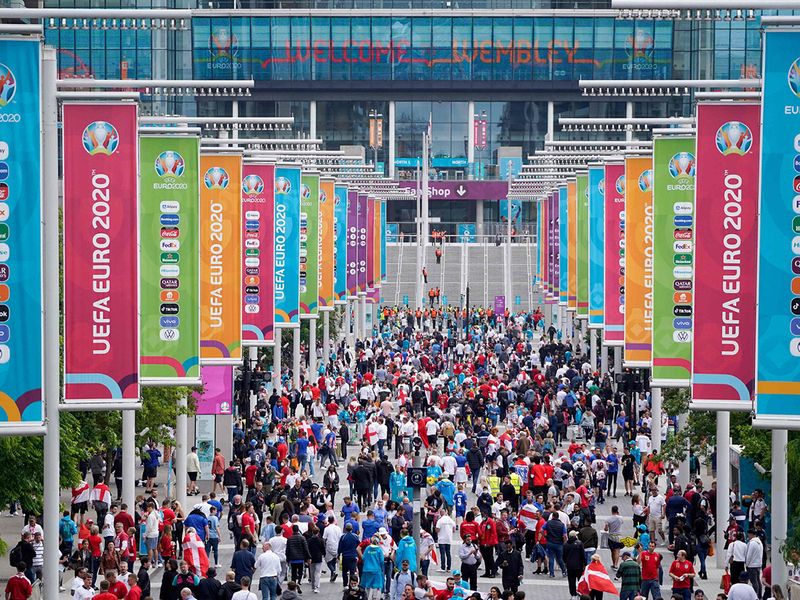
• A number of coronavirus cases also emerged following the Finland vs. Belgium match, which took place in St. Petersburg, Russia. In Finland, local media reported that at least 86 infections were detected in people returning home from Russia.
• In Denmark, spectators tested positive for the Delta variant after the match between the hosts and Belgium. In most cases, it is unclear whether they were infected in the stadium itself or elsewhere — like during travel to or from the match.
• Inevitably, as the virus (especially the Delta variant) gains dominance, such gatherings (despite the pre-screening of spectators) turn into “super-spreader” events.
• Moreover, three spectators tested positive for the delta variant in Copenhagen following the match between hosts Denmark and Belgium. In Budapest, a French family are reported to have tested positive after France’s match against Hungary.
Mask-wearing mandates in different countries
GCC countries
Wearing mask and practising social distancing at public places are mandatory in GCC nations as COVID-19 situation remains volatile though under control. Strict fines are imposed on all violators. People who violate public health rules related to COVD-19 are also subjected to other measures including jail terms and deportation in some countries.
Egypt
Stringent public mask rules are in place. A fine of EGP 50 (approximately $3.16) is imposed on those not wearing face masks in public places.
Tunisia
It is required to wear a face masks in public places. After successfully containing the virus in the first wave last year, Tunisia is grappling with a rise in infections. It imposed a lockdown in some cities since last week, but rejected a full national lockdown due to the economic crisis. The total number of cases has climbed to around 455,000 and more than 15,000 deaths, Reuters has reported.
Israel
Tel Aviv lifted the mask mandate for the entire country on June 15, 2021. Ten days later, on June 25, Israel reintroduced the requirement to wear masks indoors after a spike in coronavirus cases which topped 200 per day again. A top health official warned the spread of the coronavirus was “accelerating”, but stresses the number of seriously ill patients remains low.
India
India mandates the use of masks to tackle the spread of COVID-19 at all times. However, according to a study, 50% of people in India do not wear a mask. Of the 50 per cent who wear masks, only 14 per cent of people wear the mask correctly, according to India's Press Information Bureau.
South Asia
Most South Asian countries have made wearing masks mandatory. However, South Korea revoked the rule, but reversed the decision after a spike in COVID-19 cases.
China
The last outbreak of local COVID-19 cases in China was in the southern Guangdong province from May through June 2021, with the Delta variant dominating infections. On Wednesday (July 7, 2021), a city in southwest China that shares a border with Myanmar went into a full lockdown as local authorities wrestled with the city’s fourth outbreak of the new coronavirus since the pandemic began. Residents in the main areas of Ruili, a city in Yunnan province with a population of about 270,000, were told to quarantine themselves at home as schools and businesses shut.
Indonesia
On Tuesday (June 6, 2021), Indonesia reported record 31,189 new COVID-19 cases and 728 deaths. Mask mandate still remain in place for much of the country.
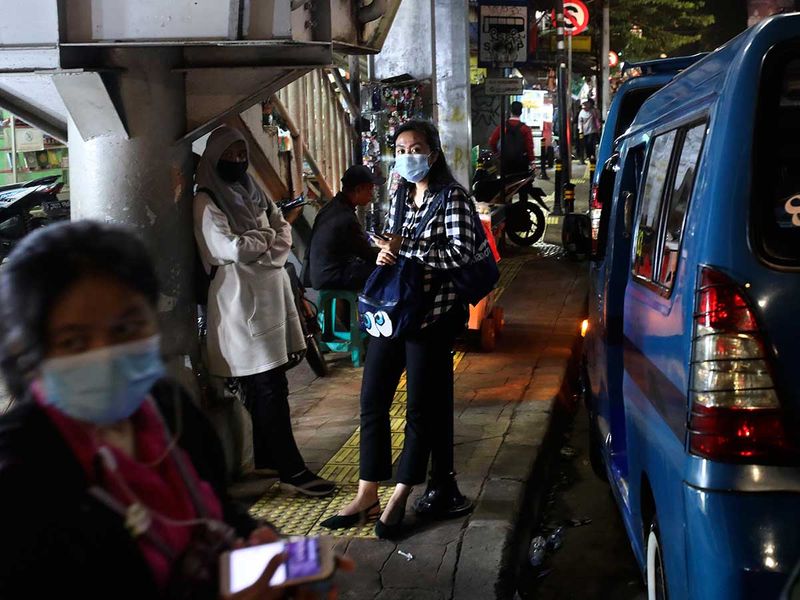
Singapore
Singapore made mask-wearing compulsory as part of stricter measures to curb COVID. Anyone caught not wearing a mask when they leave their residence faces a fine of S$300 for the first offence.
Mandatory masks were imposed in October last year. On June 28, 2021, all of Italy became a mask-free, "low-risk" zone for coronavirus, marking a dramatic milestone for the European country. Yet wearing a face mask is always mandatory in indoor public places throughout Italy. Masks are no longer mandatory outdoors, but people are advised to always carry one with them. Most of the nation is in the COVID-19 white zone, the lowest risk level in Italy’s four-tier colour-coded system to calibrate curbs in its 20 regions.
On June 15, 2021, several German states announced that they were relaxing mandatory mask rules. Indoor face coverings could be dropped in areas with few cases and high vaccination rates. Baden-Württemberg has confirmed that it will relax the obligation to wear masks in schools. There are caveats: The relaxations will only apply in districts where the 7-day incidence of infection is below 35 cases per 100,000 and there has been no outbreak at the school for two weeks. If that is the case, masks will no longer be required in classes in all types of schools.
Greece
Greece has ended mandatory wearing of masks outdoors and eased other restrictions imposed to curb the COVID-19 pandemic. Wearing masks in indoor spaces is still mandatory. However, a jump in recent daily infections could result in the reimposition of curbs.
Switzerland
Mask-wearing is no longer required outdoors in Switzerland, dance clubs and waterparks are open, and large events of over 10,000 can take place provided people can show a COVID-19 certificate. Since May 31, indoor and outdoor areas of restaurants have been open and working from home is recommended, but no longer required.
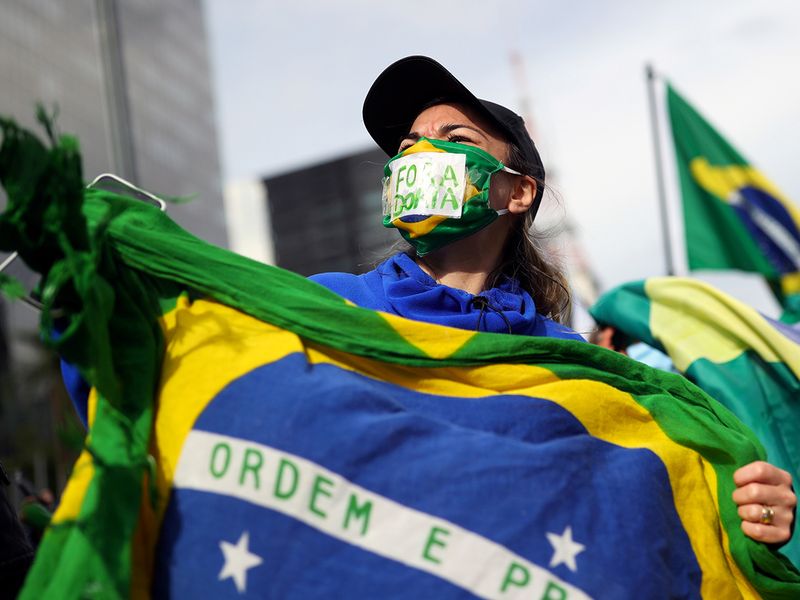
Canada
Canadians are advised to wear masks when they are in “shared space (indoors or outdoors) with people from outside of your household.” So people should cover their faces in public spaces such as stores and hotels, in workplaces even if they aren’t open to the public, and commercial vehicles.
Brazil
In the absence of a national mandate, rules on wearing masks vary from place to place. Even in areas where masks are mandatory, the rule is rarely enforced.
Mexico
The government recommends wearing masks indoors, especially in crowded places when social distancing is difficult. Masks are mandatory at workplaces, but it’s not enforced, a Bloomberg report said.
Latin America
Uruguay, Paraguay, Argentina and Costa Rica have done well to control the spread of COVID-19 infections with a range of measures, including the use of masks. But countries such as Panama and Honduras have struggled to rein in the spread of the coronavirus, according to Miami NPR affiliate WLRN. There’s no word on the enforcement on wearing masks.


